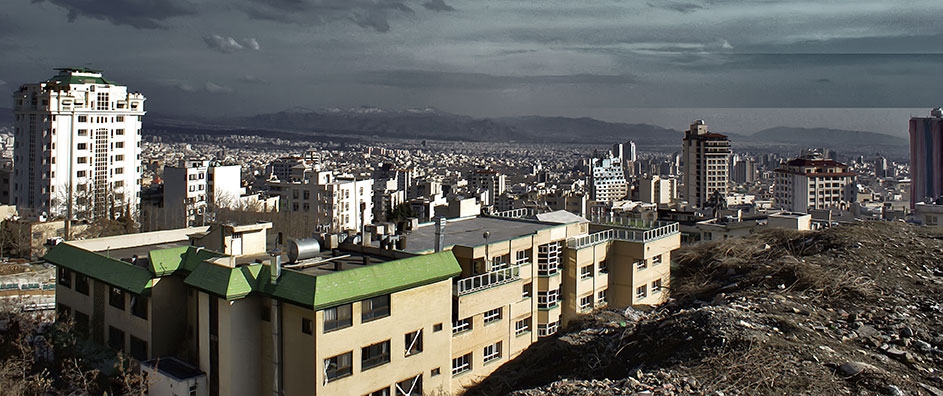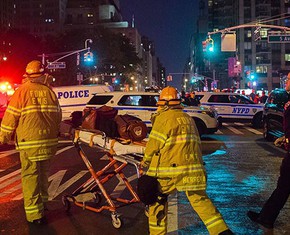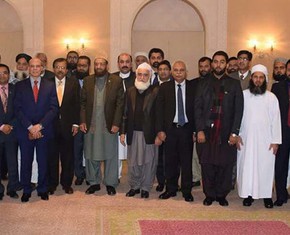The views expressed in our content reflect individual perspectives and do not represent the authoritative views of the Baha'i Faith.
[Yesterday BahaiTeachings.org published the first part of an open letter to the Iranian government’s Head of the Human Rights Division of the Judicial Branch, Mr. Mohammad Javad Larijani—who recently stated that “No one is in prison for being a Baha’i and if Baha’is do not commit illegal acts their citizenship rights will be protected.” The letter from the Yaran, the seven Baha’i leaders who have now been imprisoned for six years for no crime other than their Faith, continues here, listing eight questions about the egregious human rights violations Baha’is continue to endure under the Iranian regime.]
1. Mr. Larijani, has the execution of the more than 220 Bahá’ís—ranging from a sixteen-year old girl to a ninety-five-year old man–been carried out in accordance with their citizenship rights, when virtually every one of them were told that if they recanted their beliefs and converted to Islam their lives would be spared and they would be freed from prison? If one commits a crime, how is it that the mere act of recantation of one’s beliefs absolves him or her of culpability?
2. Does the dismissal of tens of thousands of Bahá’í workers and professionals from their workplaces and from government organizations—not to mention suspension of their pensions and obstruction of their employment in the private sector, when no crime had been committed by them and official documents cite the sole reason for their dismissal or suspension “membership in the misguided Bahá’í sect”, constitute upholding their rights of citizenship? And now, Mr. Larijani, can your excellency name one Bahá’í who is employed in any government organization? The answer is clearly negative because at this time no government organization is permitted to hire Bahá’ís.
3. Has the collective confiscation of the properties of Bahá’ís in Yazd and the ban on their doing business with others been executed in accordance with their rights as citizens? Mr. Larijani, those who were suckling children when such verdicts were issued and who are now grown and have formed families continue to suffer numerous obstacles to earning a livelihood. Were these suckling children or [those whose graves are being destroyed now] all criminals?
4. Does the debarring of thousands of Bahá’í students following the Islamic revolution from access to university and the deprivation from higher education over the past thirty years of tens of thousands of youth eagerly interested in learning, solely on account of their beliefs, accord with their citizenship rights? Do these acts attest that the regime protects the rights of Bahá’ís, all of whom are blameless? Surely your excellency does not consider the numerous memoranda instructing universities throughout the country not to register Bahá’í students and to expel them on any grounds, as consistent with supporting and respecting the rights of the Bahá’ís as citizens of the country. These memoranda, which have regrettably been issued by the same authorities that you consider are respectful of the rights of the Bahá’ís, are available for all to see.
5. We invite you to reflect on the memorandum of Esfand, 1369 [February 1991] ratified by the Supreme Revolutionary Cultural Council, which was issued with the approval of the highest authorities in the country, and ask that you compare it with the nation’s Constitution and human rights laws. This memorandum clearly states that (a) Bahá’ís can be enrolled in schools provided they have not identified themselves as Bahá’ís; (b) they are to be denied employment if they identify themselves as Bahá’ís; (c) they must be expelled from universities, either in the admission process or during the course of their studies, once it becomes known that they are Bahá’ís; (d) their progress and development should be blocked. For your information, in 1386 [2006/2007], when a group of Bahá’í students who had been expelled from university appealed to the court of justice against the university, the documents issued by the court clearly state that their dismissal was based on the aforementioned memorandum of the Supreme Revolutionary Cultural Council. Our question is this: How is this memorandum consistent with supporting Bahá’ís and respecting their citizenship rights? And if we observe fairly, is not this very memorandum indicative of the way the regime regards and deals with the Bahá’ís?
6. Mr. Larijani, we appeal to you sincerely to consider this question before your conscience: What crimes were committed by those Bahá’ís who made arrangements for Bahá’í students who are deprived of access to higher education to continue their learning in their own private homes, through the internet, and without any use of government accommodations or funds? Is private education a crime under the penal laws of this country? Is it fair to sentence to long prison terms those individuals who give wholeheartedly of their time and their knowledge to facilitate the education of Bahá’í youth? Is the government’s policy in this matter not an effort to retard the cultural progress of a community? How could anyone consider such wholesale violations as constituting government protection of the rights of Bahá’ís to higher education?
7. Mr. Larijani, does the dismissal of all Bahá’í government workers and professionals from public and even private businesses; confiscation of the private properties of Bahá’ís in the agricultural and industrial sectors—for which there is clear documentary evidence; the closure of hundreds of shops and businesses owned by Bahá’ís in various towns based on unfounded excuses; the expelling of many Bahá’í villagers from their homes and the confiscation of their farm animals and agricultural lands, which have belonged to their families for generations; and the numerous other ongoing obstacles to Bahá’ís to engage in business and employment, bear any resemblance whatever to your statement that Bahá’ís are able, under the protection of the regime, to be gainfully employed? Of course, it goes without saying that protection of its citizens is the inherent obligation of any government to its citizens and so the question is this: Is it not that all these obstacles and the countless ongoing hardships that are visited upon the Bahá’ís are aimed precisely at implementing one of the provisions of the Supreme Revolutionary Cultural Council memorandum, namely, that the progress and development of the Bahá’ís must be blocked?
8. Mr. Larijani, how should one view the confiscation of Bahá’í holy places and endowments throughout the whole of Iran? Which singular crime of any Bahá’í has led to the confiscation of the centres for Bahá’í gatherings and prayers in various cities and villages? As you believe in collaboration with Bahá’ís based on their citizenship rights, do you readily accept that a Bahá’í has the right to be buried as written in his/her will, in accordance with Bahá’í requirements and in an appropriate location—which any government is obligated to provide? And yet it is astonishing that over the years, even this right has been taken away from dead Bahá’ís. Mr. Larijani, does the confiscation and destruction of Bahá’í cemeteries accord with respecting the citizenship rights of the Bahá’ís? Of what, in your opinion, is desecrating cemeteries and disinterring bodies from their graves—acts which are considered abhorrent in any religion—indicative?
Part 1 of 3: The Iranian Baha’i Prisoners Speak Out – An Open Letter from The Yaran
Part 3 of 3: An Equal Standard of Human Rights for the Iranian Baha’is
















Comments
Sign in or create an account
Continue with Googleor